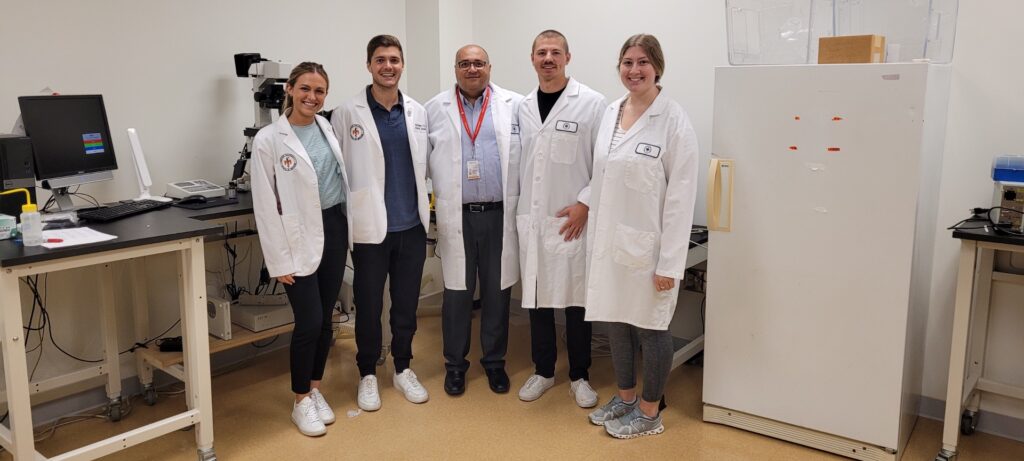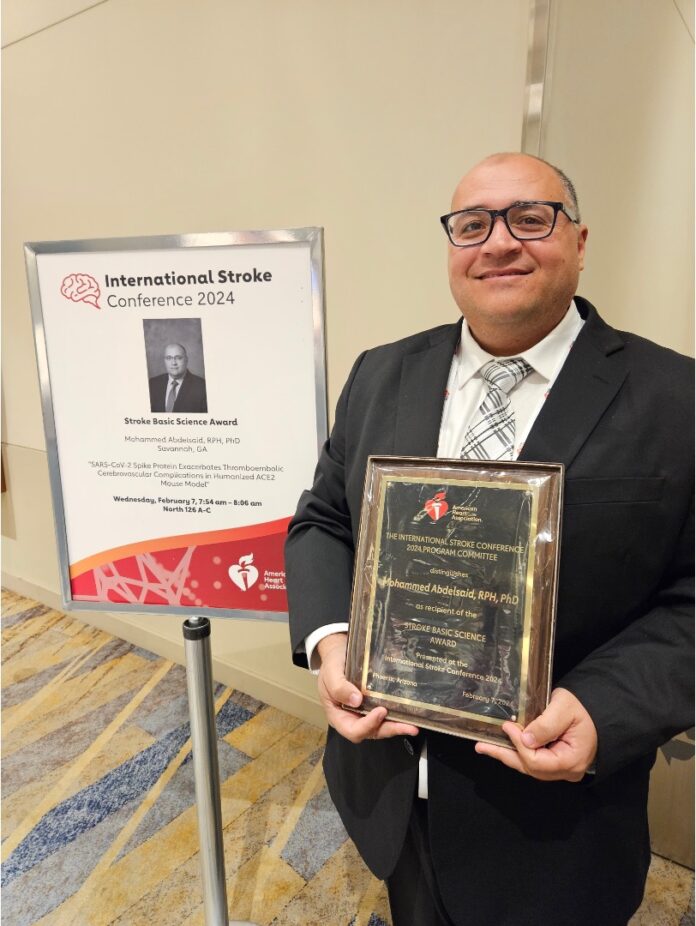SAVANNAH — Mercer University School of Medicine (MUSM) Professor Mohammed Abdelsaid, RPh, Ph.D., assistant professor of pharmacology on the Savannah campus, was one of six scientists recognized for their notable new research during the American Stroke Association’s (ASA) International Stroke Conference. The meeting, held in Phoenix Feb. 7-9, is described as a world premier meeting for researchers and clinicians dedicated to the science of stroke and brain health.
“It’s a very prestigious award because it’s an international-level meeting,” said Dr. Abdelsaid. “We’re competing with researchers from Germany, France, England, Japan, and the award committee recognized our work as having great significance.”
Dr. Abdelsaid received the Stroke Basic Science Award, which recognizes outstanding basic and translational science that is laboratory-based. Dr. Abdelsaid’s winning research is addressing a recent connection made between COVID-19 and an increased stroke risk.
“Georgia is one of the states with the highest rate nationally for stroke,” said Dr. Abdelsaid. “And now, we were seeing that COVID-19 increased a patient’s risk for a stroke, and it increased the mortality rate of those patients. So it’s a double hit.”
Dr. Abdelsaid is using mice to study why this stroke-COVID connection exists and how it can potentially be prevented. He hypothesizes that an already FDA-approved hypertension medication could prevent COVID-19 patients from having an increased risk of stroke as well as improve their cognitive function, reducing the so-called COVID brain fog.

Graduate students are highly involved in the research process, and Dr. Abdelsaid said he credits the student researchers with the success of the study and recognition by the ASA.
“This is actually one of the great things about Mercer,” he said. “With work like this, I may be the brain, but the students are the muscle; the students did the actual work.”
Dr. Abdelsaid added that understanding the long-term effects of COVID-19 remains a big medical challenge.
“The long-term outcome from COVID, we will be facing it, and the new generation will be facing it,” he said. “So being prepared for that is something of great clinical significance.”









